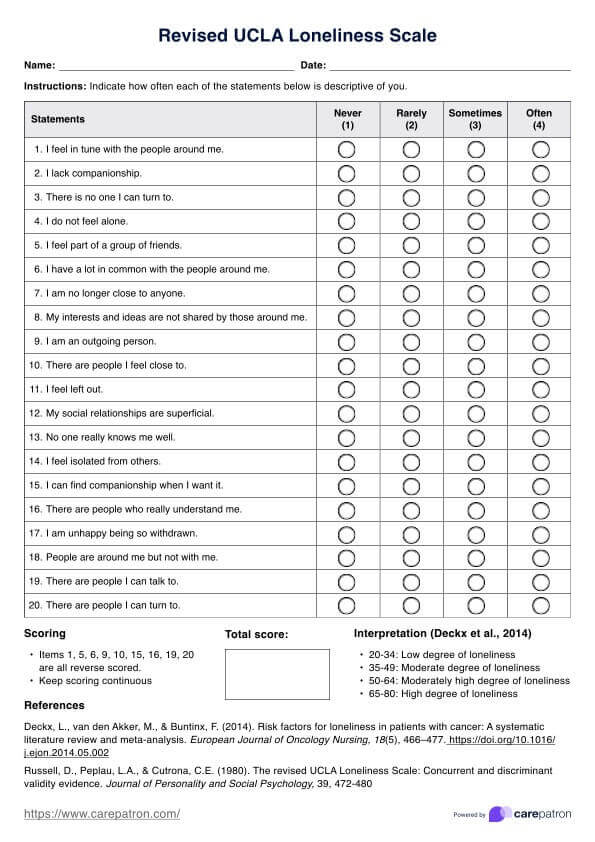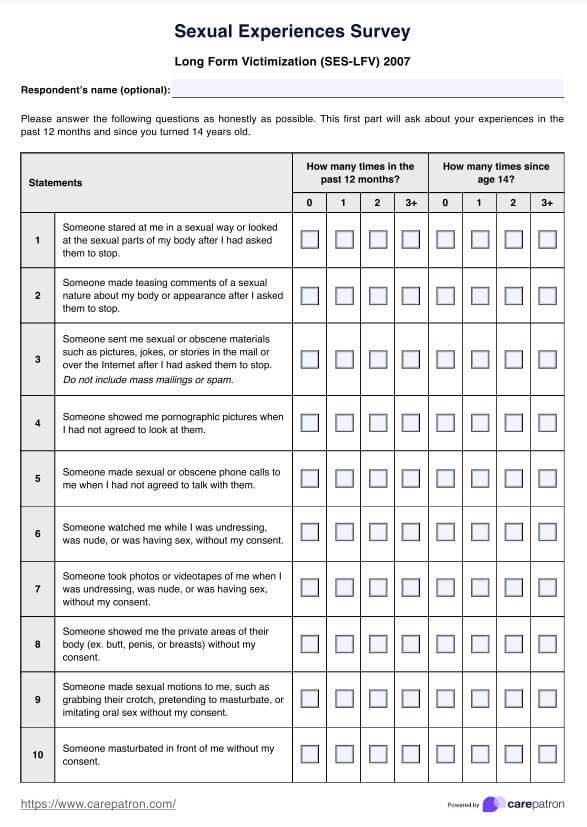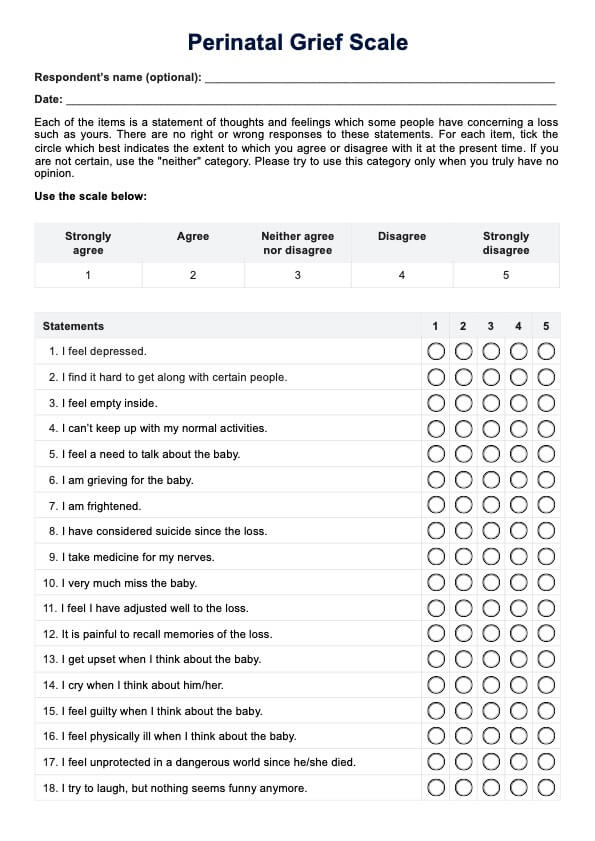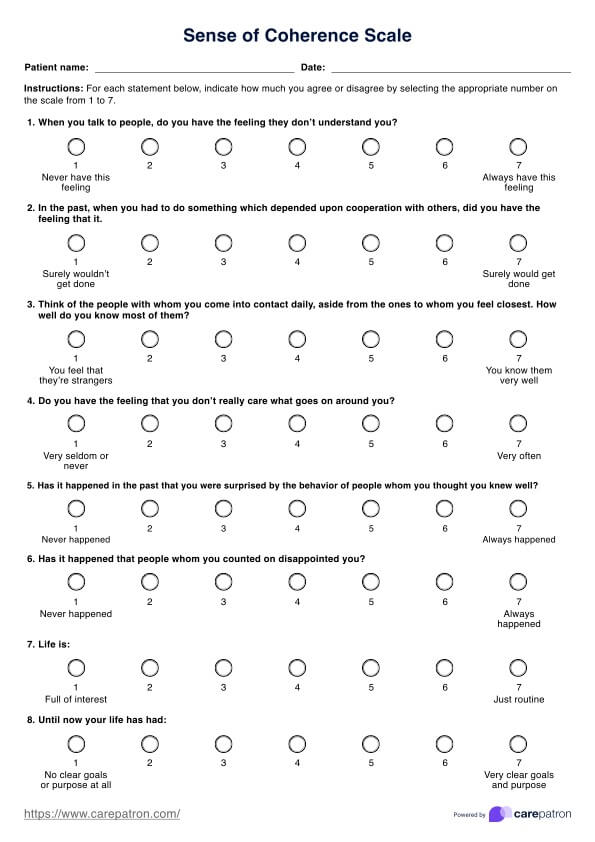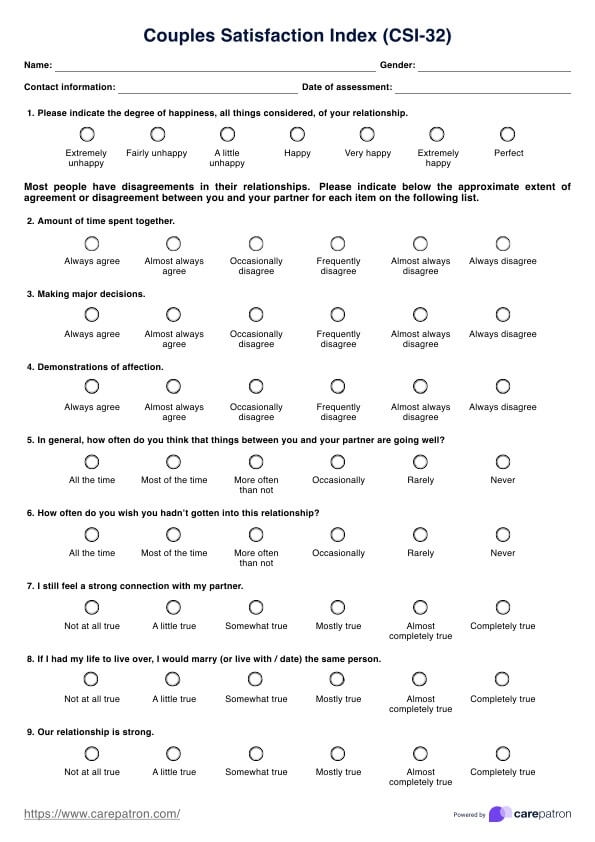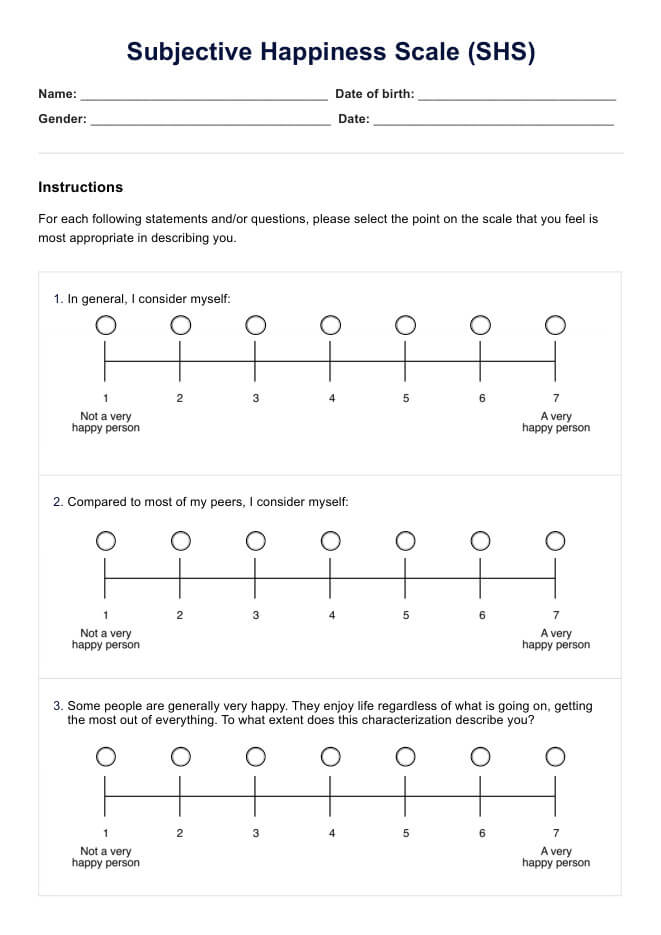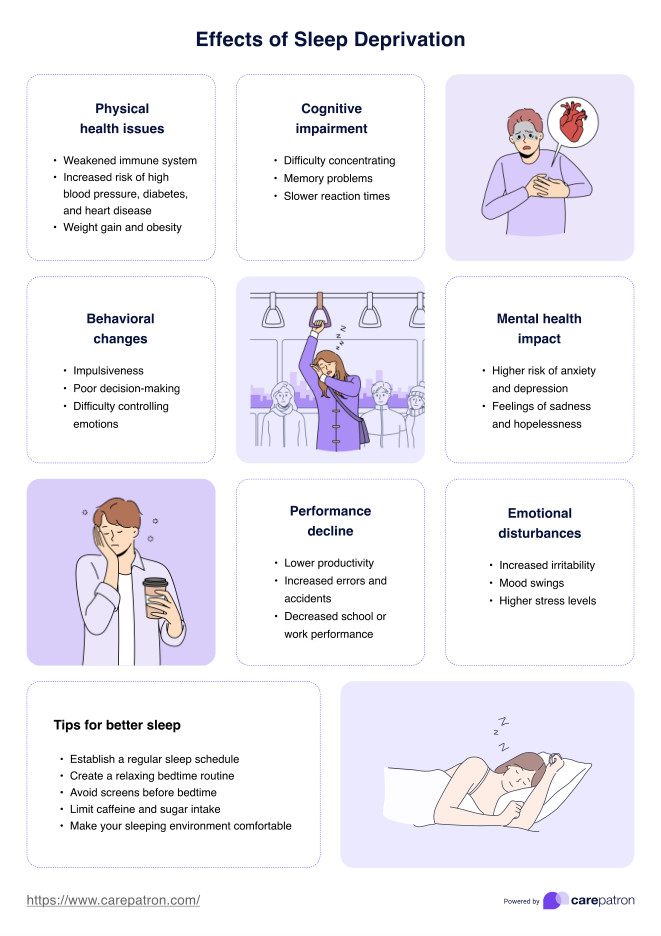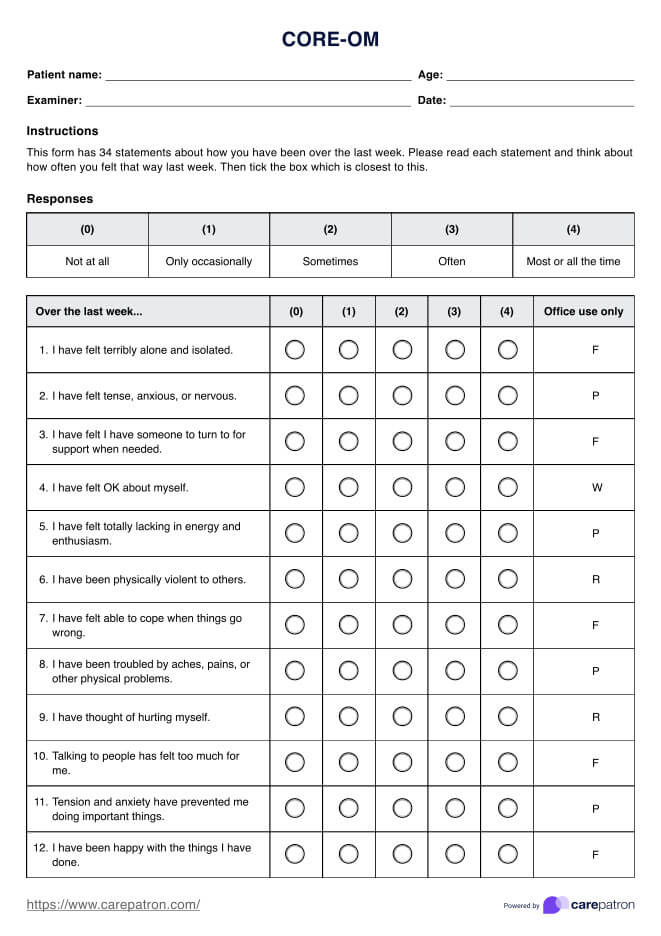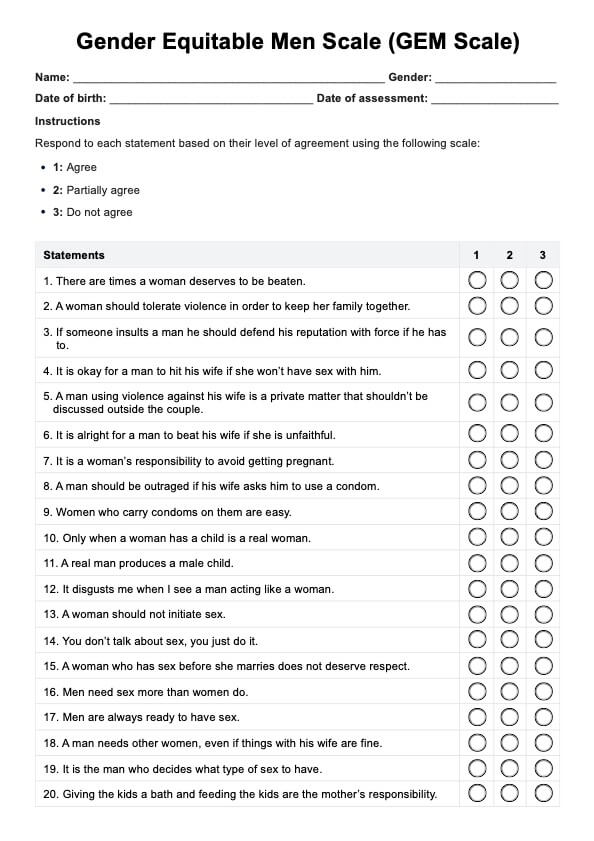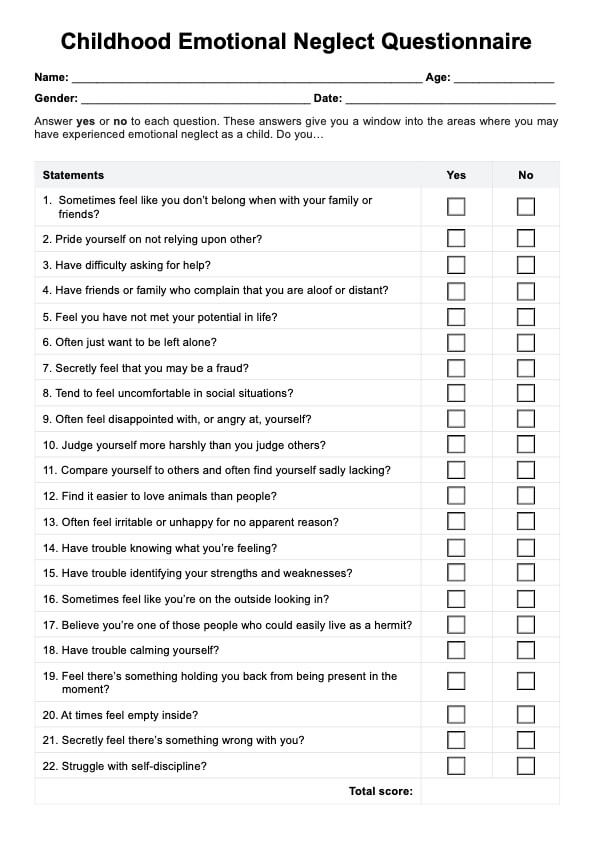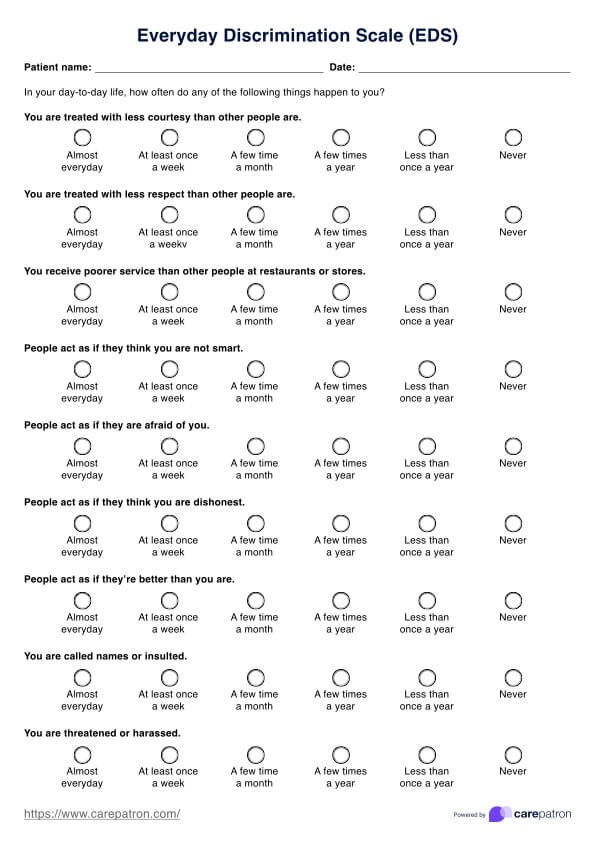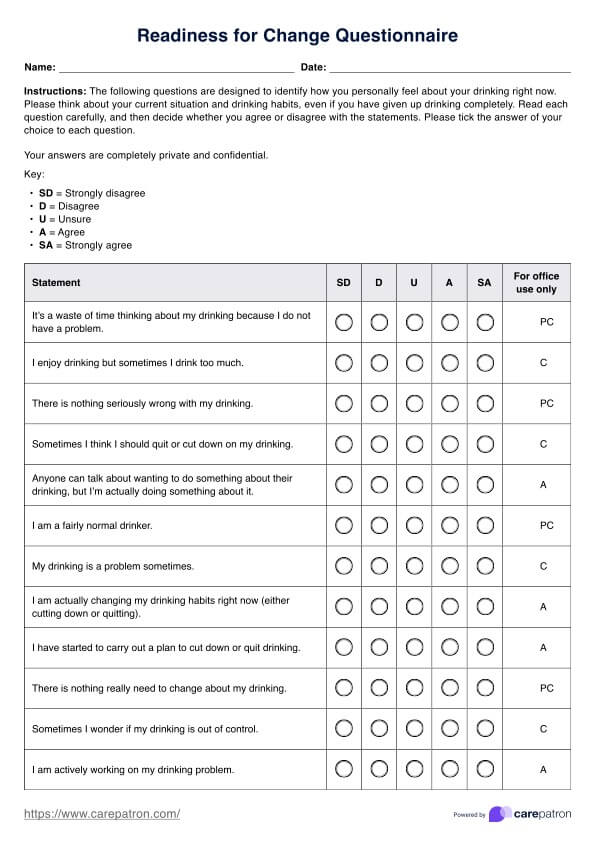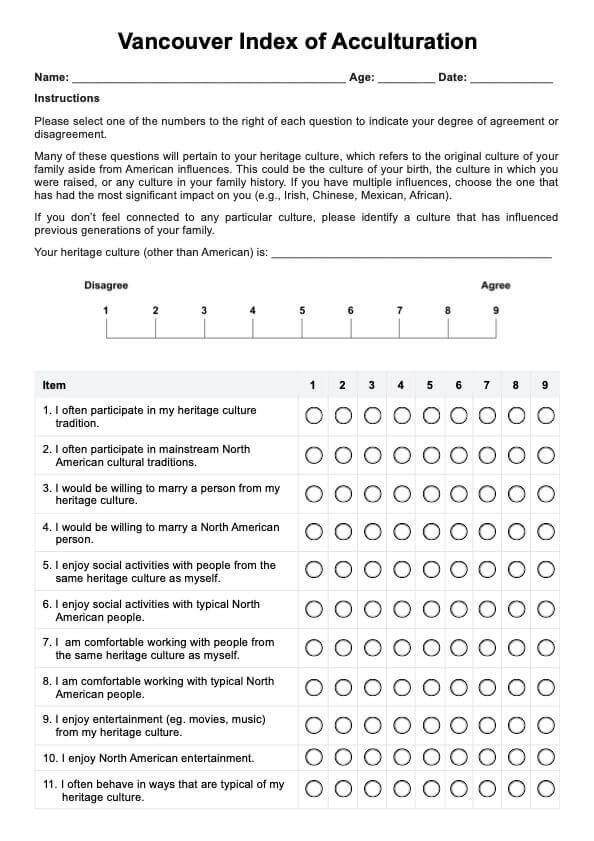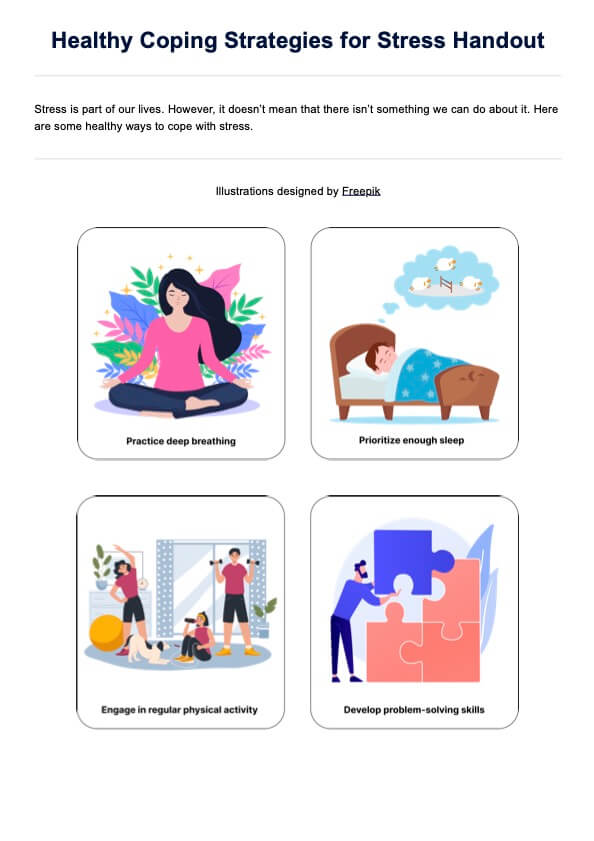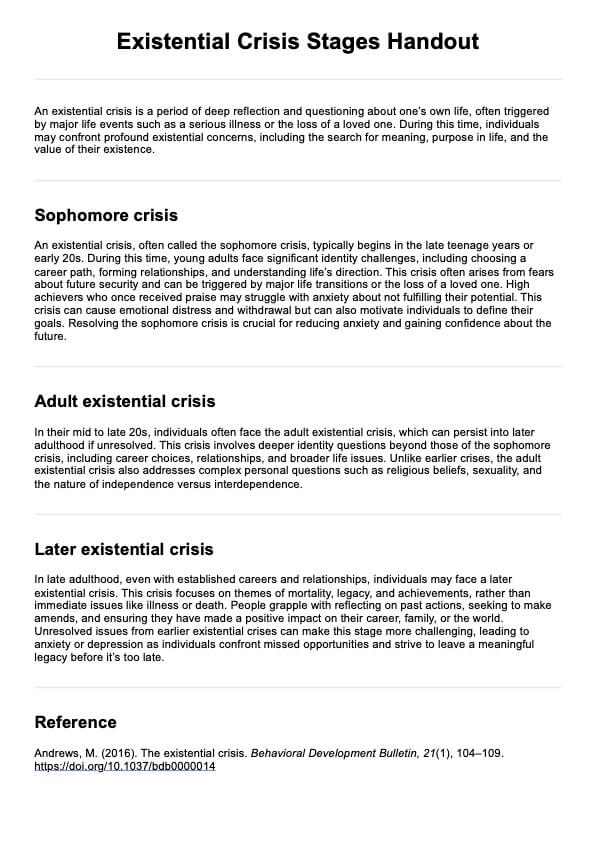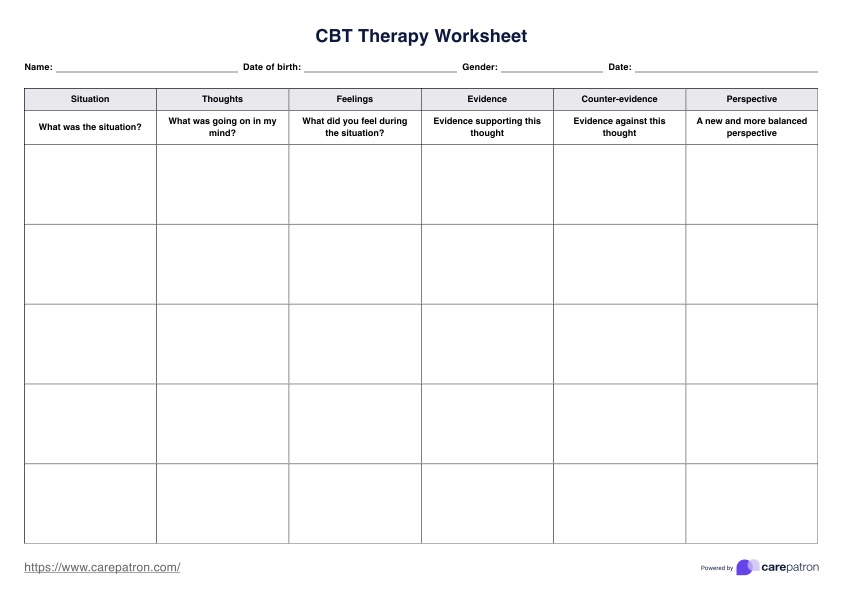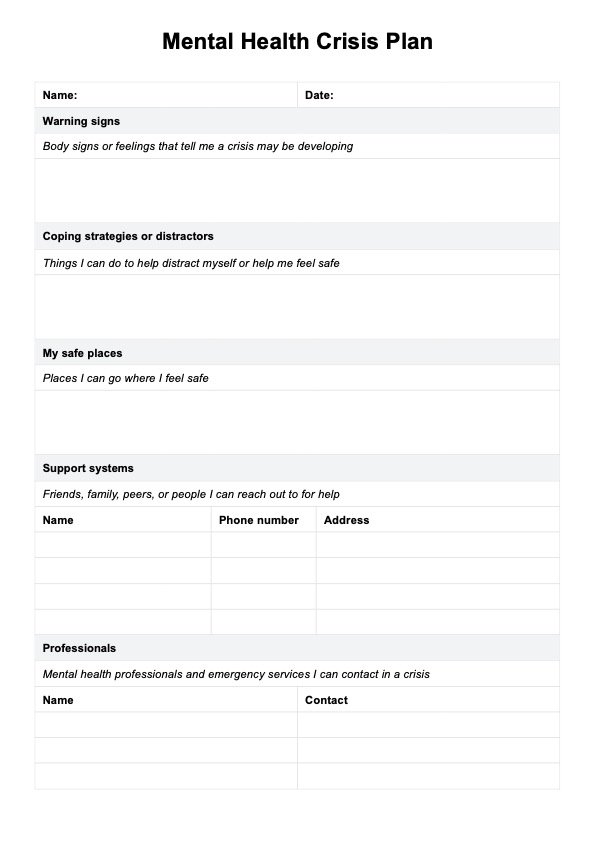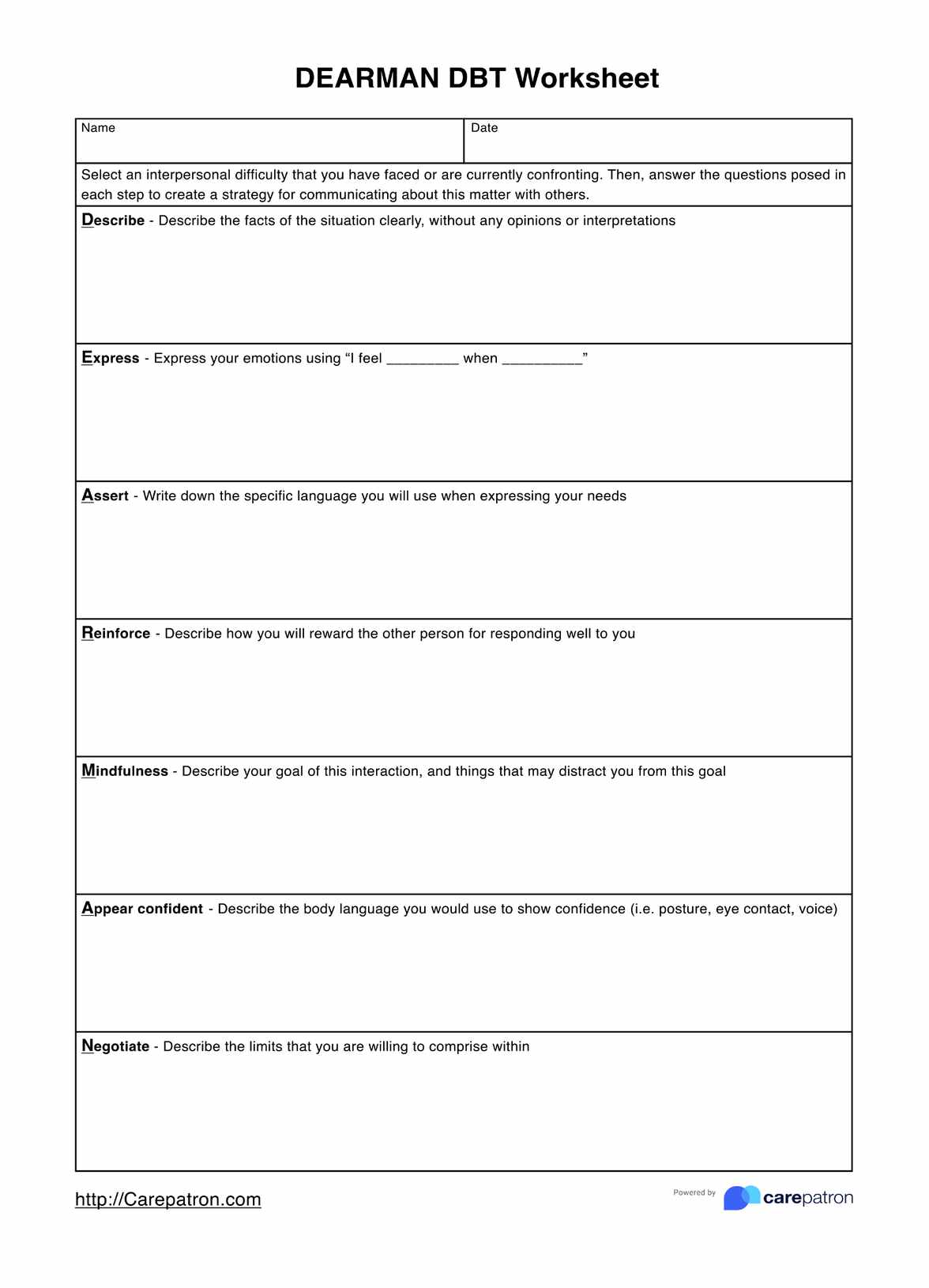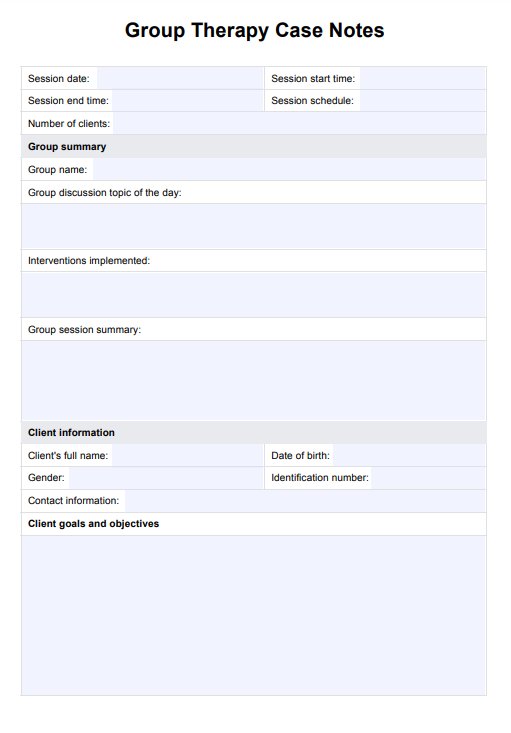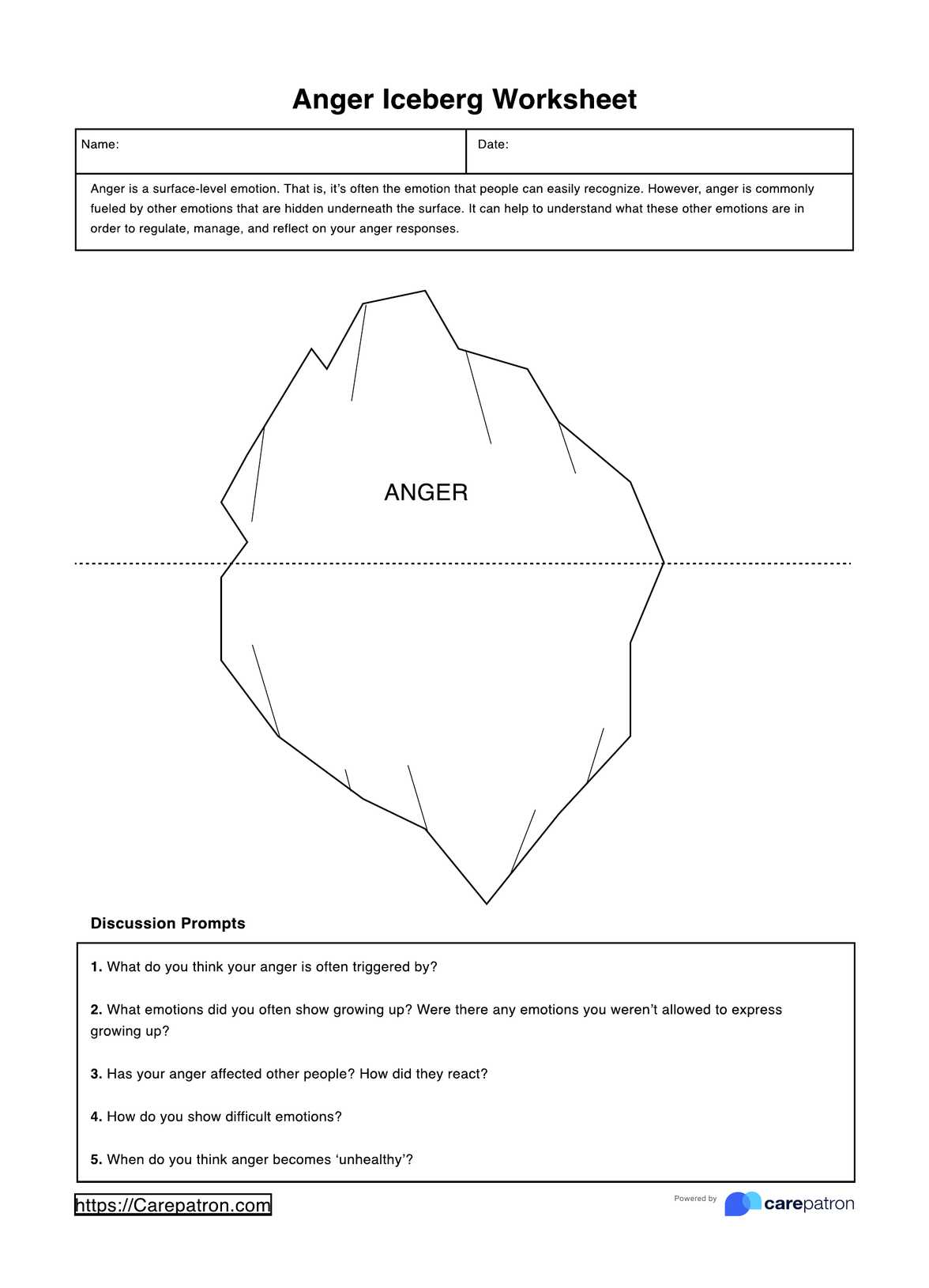Self-Care Assessment
Access Carepatron's free Self-Care Assessment PDF to support clinical evaluations. Help clients improve self-care practices with this practical, evidence-based resource.


The importance of self-care
Self-care is essential for maintaining physical health, mental wellbeing, and overall productivity (World Health Organization, 2024). Engaging in regular self care activities, such as proper nutrition, exercise, and adequate sleep, helps maintain health and prevent chronic illnesses like heart disease and diabetes.
Prioritizing personal hygiene and healthy relationships supports both physical and mental health. Practicing self compassion and using tools like the mindful self care scale can improve stress management and mental resilience. Healthcare providers who focus on current self care practices are better equipped to promote self care among patients and avoid burnout.
Implementing self care strategies, including stress management techniques and self-reflection, enhances mental health, focus, and energy levels. Promoting health through these practices not only benefits the individual provider but also improves patient care outcomes. By investing in mindful and consistent self-care, medical professionals can sustain their capacity to deliver quality care while safeguarding their own wellbeing.
Self-Care Assessment Template
Self-Care Assessment Example
What is a Self-Care Assessment?
A Self-Care Assessment is a tool designed to measure how individuals engage in various self care activities that promote health and enhance overall well being. The Self-Care Inventory (SCI), a widely used assessment, evaluates behaviors across three key areas: self-care maintenance, self-care monitoring, and self-care management (Luciani et. al., 2022). These scales help healthcare providers understand how patients maintain their physical and emotional health, monitor symptoms, and manage conditions like heart failure.
The SCI includes 20 items that assess routine behaviors, such as engaging in physical activities, taking medications, and attending medical appointments. By using this assessment, a healthcare provider can generate ideas to develop a personalized self care plan, considering environmental factors, global practices, and patients’ daily lives.
How does it work?
Medical professionals can seamlessly incorporate Carepatron’s Self-Care Assessment into patient evaluations to better understand their self care behaviors. Follow these steps to. get started:
Step 1: Access the assessment template
Click the “Use template” button to get immediate access to the Self-Care Assessment through Carepatron’s platform. You’ll be directed to download the app, where you can easily integrate the template into your practice for quick, user-friendly assessments.
Step 2: Use the template in patient assessment
Once accessed, incorporate the Self-Care Assessment into routine evaluations. The template provides structured questions that help healthcare providers identify patients’ current self care activities, enabling targeted discussions on improving their well being and lifestyle choices.
Step 3: Conduct the assessment
Guide patients through the assessment by asking them to rate their engagement in physical, emotional, and maintenance-related self care behaviors. Ensure patients understand each item to collect accurate responses that reflect their daily lives and habits.
Step 4: Gather and interpret data
After completion, gather data from the assessment to interpret scores across key self care areas. Use the results to pinpoint strengths, highlight areas for improvement, and consider environmental factors that may influence patients' self care plan and overall health management.
Step 5: Provide patient education and next steps
Review the assessment findings with the patient to generate ideas for new self care activities. Offer practical self care strategies tailored to their needs and encourage quality time for both physical and emotional health. Establish actionable next steps to improve self care and sustain long-term health outcomes.
Benefits of using this assessment
Using the Self-Care Assessment offers several practical benefits for medical professionals. It streamlines patient evaluations by providing a structured tool to quickly assess key self care behaviors across physical, emotional, and lifestyle domains. This improves the efficiency of consultations, enabling providers to identify risk factors, lifestyle habits, and potential barriers to health maintenance. The assessment also facilitates targeted care planning, allowing professionals to develop personalized interventions that address patients' specific needs.
By integrating this tool into workflows, healthcare providers can enhance patient engagement and improve communication during consultations. It supports early detection of inadequate self care practices, which is crucial for managing chronic conditions and preventing further health deterioration.
Additionally, the standardized format ensures consistency in data collection, making it easier to track patient progress over time. Overall, the Self-Care Assessment helps medical professionals save time, improve care quality, and promote more effective patient-centered interventions.
Scoring and interpretation
The Self-Care Assessment uses a structured scoring system to evaluate self-care behaviors across three scales: Self-Care Maintenance (8 items), Self-Care Monitoring (6 items), and Self-Care Management (6 items). Each item is rated on a scale from 1 (strongly disagree) to 5 (strongly agree), with higher scores indicating better self-care in the respective area.
To calculate the raw score for each scale, sum the responses to the items within that scale. A score should only be calculated if at least 50% of the items in a scale are answered; otherwise, that scale’s score is considered missing.
High scores, closer to 100, reflect strong adherence, indicating that the individual consistently follows their prescribed self-care regimen. Moderate scores suggest partial adherence, meaning that while some self-care behaviors are followed, others may need improvement. Low scores, closer to 0, indicate poor adherence, highlighting the need for interventions, education, or additional support to help the individual improve their self-management.
References
Luciani, M., De Maria, M., Page, S. D., Barbaranelli, C., Ausili, D., & Riegel, B. (2022). Measuring self-care in the general adult population: development and psychometric testing of the Self-Care Inventory. BMC Public Health, 22(1). https://doi.org/10.1186/s12889-022-12913-7
World Health Organization. (2024). Self-care interventions for health. Www.who.int. https://www.who.int/health-topics/self-care
Commonly asked questions
A self-care assessment is a tool used by healthcare providers to evaluate an individual’s engagement in behaviors that promote physical, emotional, and mental well-being. It helps identify areas needing improvement to develop personalized self-care plans.
The 5 C's of self-care are Compassion, Commitment, Consistency, Connection, and Care, which guide individuals in maintaining regular self-care practices to enhance overall well-being. These principles encourage balanced habits that support physical, mental, and emotional health.
The Self-Care Inventory (SCI) is a widely used tool that measures self-care behaviors across three key areas: self-care maintenance, monitoring, and management. It provides healthcare professionals with valuable data to assess and improve patient self-care practices.
The Self-Care Inventory (SCI) is a widely used tool that measures self-care behaviors across three key areas: self-care maintenance, monitoring, and management. It provides healthcare professionals with valuable data to assess and improve patient self-care practices.


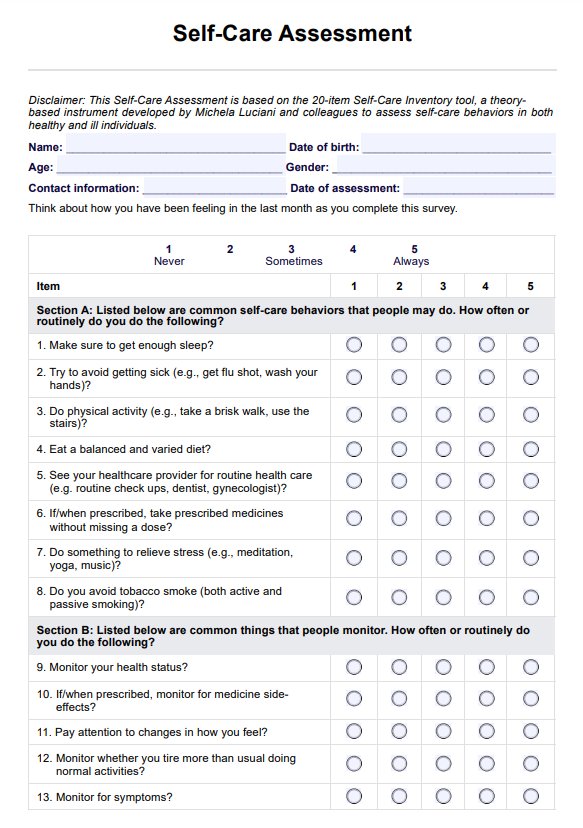
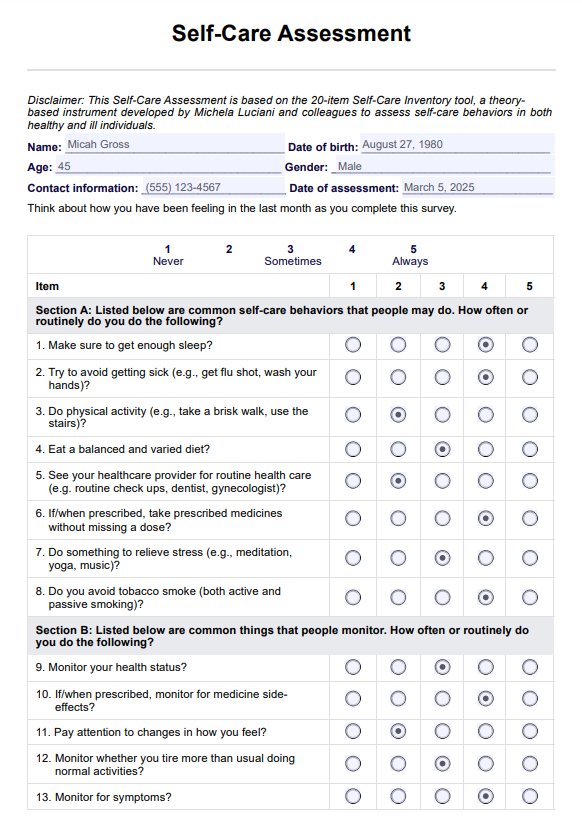

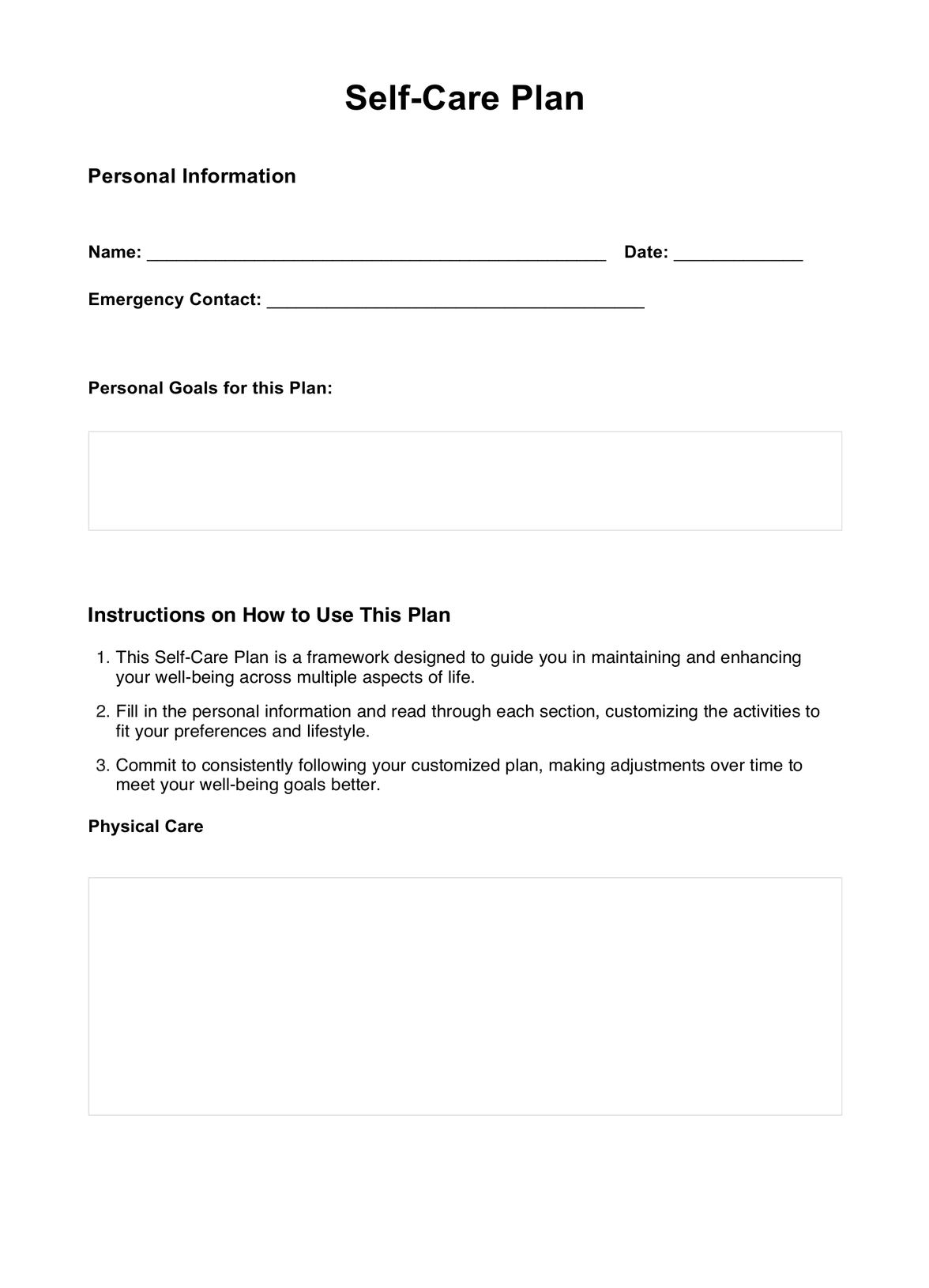
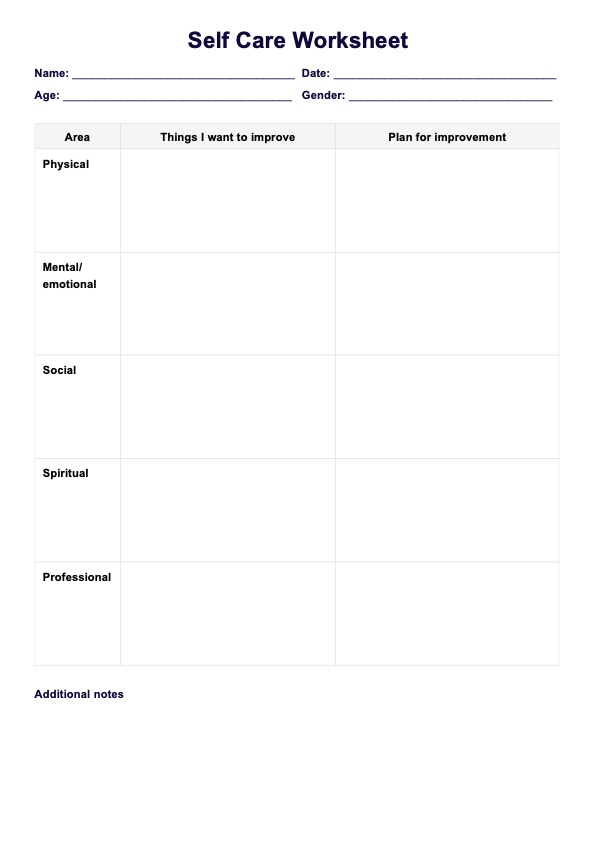
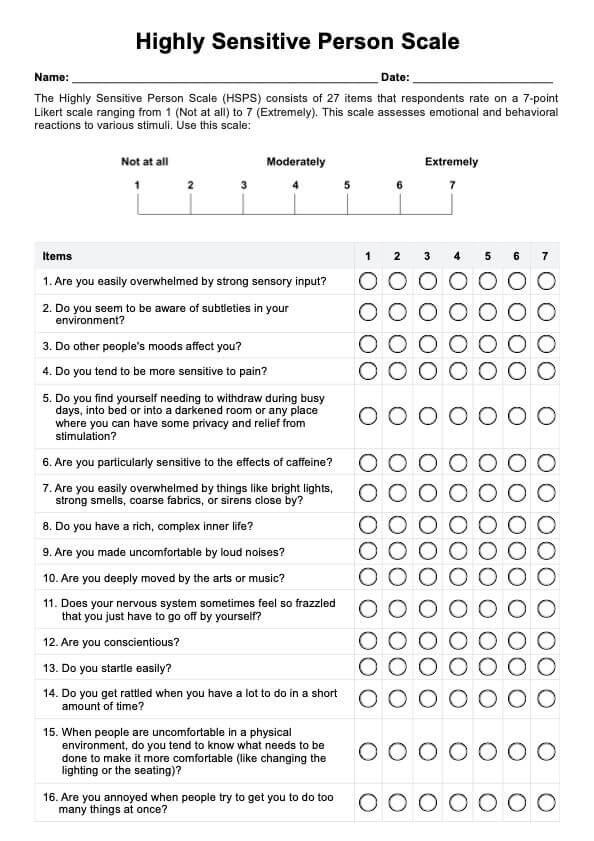

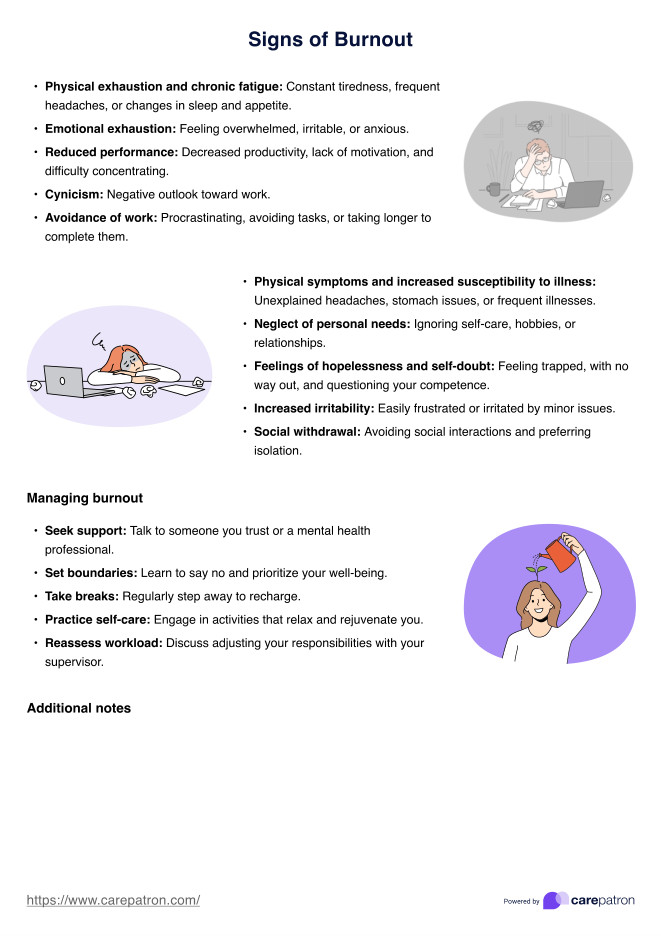









-template.jpg)





































































